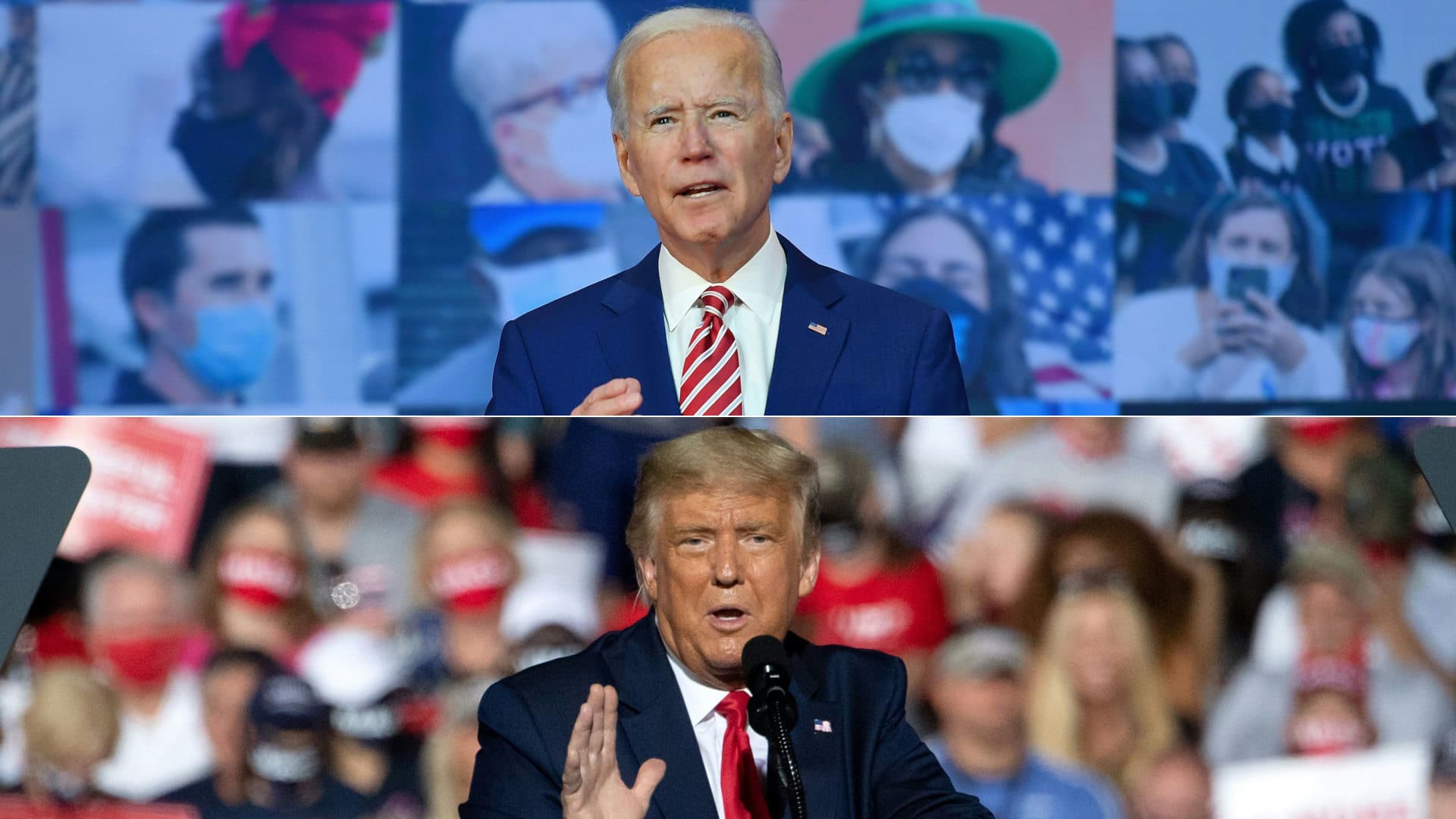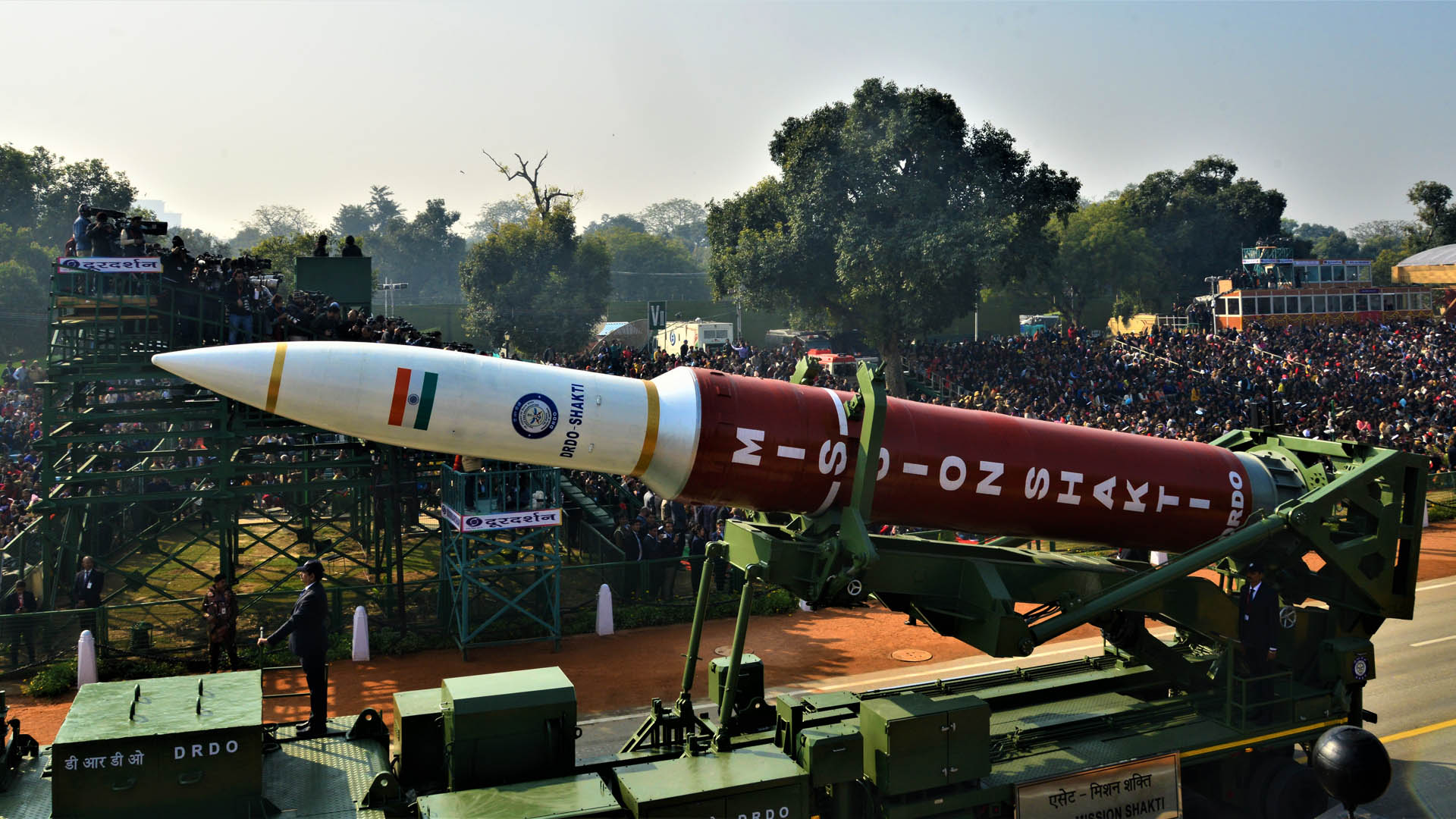It may take days, or even weeks, for disputes over the results of the U.S. presidential election to be resolved. But this much is certain: Whoever takes the helm will be leading the country into a new era of global nuclear weapons policy.
That’s because in January, two days after Inauguration Day, the United Nations’ Treaty on the Prohibition of Nuclear Weapons will take effect. For the 50 nations who have ratified it, the legally binding agreement will prohibit the development, testing, production, stockpiling, stationing, transfer, use, and threat of use of nuclear weapons. Although the U.S. is currently not party to the treaty, our next president — be it Donald J. Trump or Joe Biden — should take note of the historic agreement. And they should also take to heart the international call to reduce the world’s supply of nukes.
Nukes have posed a threat to humanity since the 1940s, and the doctrine of mutual assured destruction still looms behind many conflicts around the world. But nukes have drawn little attention since the fall of the Soviet Union, and they rarely came up as a presidential campaign issue. While policymakers are right to be concerned about the Covid-19 pandemic and worsening climate change, a nuclear disaster could easily arrive at any moment with a president authorizing a launch.
Over the past four years, President Trump has taken dangerous steps toward the brink of nuclear apocalypse. His withdrawal from the Iran nuclear agreement and his obsession with imposing economic sanctions against the country has not only harmed Iranians who are struggling with their own coronavirus outbreaks — it has encouraged the Iranian government to disengage from diplomacy and begin stockpiling weapons-grade material. Were Iran to renew its pursuit of a nuclear weapon, it would surely spark a wave of nuclear proliferation throughout the Middle East. In addition to returning to and supporting the agreement with Iran, the incoming president should also negotiate with North Korea — the newest nuclear power — beginning with talks with no preconditions.
Trump, who seems to view compromise as a sign of weakness, has so far spurned international cooperation. But participating in these alliances has long been one of the ways the U.S. asserts its strength and leadership, and it can spur rivals like Russia and China to follow in our footsteps.
In the wake of a Trump administration that openly destroyed alliances, a Biden administration would have many treaties to rejoin or extend, beginning with the New START Treaty, which established a framework for the U.S. and Russia to draw down their nuclear stockpiles. That agreement was negotiated and signed while Biden was vice president but now is due to expire in February. It would also be imperative to rejoin other agreements Trump abandoned, including the Intermediate-Range Nuclear Forces Treaty, a U.S.-Russia agreement prohibiting the launch of certain ground-based missiles, and the Open Skies Treaty, which contained provisions for reconnaissance flyovers. A Biden administration would also do well to rejoin the Anti-Ballistic Missile Treaty, from which President George W. Bush withdrew.
That said, Republican administrations haven’t been alone in making nuclear policy missteps. The Obama administration, for instance, initiated a trillion-dollar nuclear “modernization” program that expanded to involve not just improving a few old warheads but the development and upgrading of a vast array of new weapons, including bombers, ballistic missiles, and submarines. Although some aging military infrastructure surely needed to be improved, this program went far beyond what was necessary, and signaled to the world that the U.S. wasn’t serious about reducing the role of nuclear weapons in its national security policy.
Trump, for his part, has grown the modernization program even further, adding to the mix so-called “low-yield” nukes, which explode with a third of the force of the bomb dropped on Hiroshima but are more destructive than the blast that devastated Beirut in August. These new weapons threaten to expand arms races with other nuclear powers and arguably lower the bar for the use of nukes in a conflict.
The Obama administration also missed an opportunity to take hundreds of nukes off “hair-trigger alert,” a relic of the Cold War that calls for round-the-clock crews to remain prepared to launch land- and submarine-based nuclear missiles within a moment’s notice, setting the stage for potentially disastrous consequences of a false alarm. If Biden wins the presidency, he could end this dangerous policy — if necessary, without approval from Congress. Doing so would likely encourage Russia to do the same.
Ultimately, no matter who is named the next U.S. president, they should use the historic moment to rebuild international goodwill, back away from nuclear brinkmanship, and reduce the risks of catastrophic nuclear war. Cold-war-era nuclear strategies have outlived their usefulness. It is time to bolster a new vision of the world with the goal of peace, rather than the perilous folly of American dominance.












Comments are automatically closed one year after article publication. Archived comments are below.
“improving a few old warheads” i.e. upgrading them so that they could kill a lot more people. The inverted ethics of a militarised society means that even the author of a piece calling for reductions in nuclear weapons carelessly drops this. The USA could initiate a reduce-to-zero programme and get rid of them in months, encouraging Russia, China, the UK, France and the other nuclear-armed states to follow suit. What will Biden do? As little as possible.